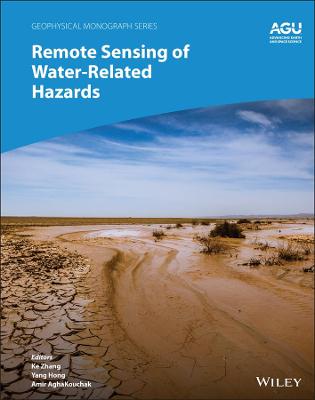Building Collaborative Trust in Construction Procurement Strategies
 -15%
portes grátis
-15%
portes grátis
Building Collaborative Trust in Construction Procurement Strategies
McDermott, Peter; Farrell, Peter; Challender, Jason
John Wiley and Sons Ltd
04/2019
280
Dura
Inglês
9781119492269
15 a 20 dias
680
Foreword by Mark Farmer xiii
Foreword by Emeritus Professor Peter Brandon xv
Preface xvii
Acknowledgements xix
List of Figures xxi
List of Tables xxv
1 Introduction 1
References 4
2 Context of the Lack of Trust in the Construction Industry 7
2.1 From Where Has the Lack of Trust Emerged? 7
2.2 Calls for More Research into the Study of Trust in Construction Contracting 9
2.3 Deficiencies with Traditional Construction Procurement 10
2.4 Overall Context of Collaborative Working and Partnering Within the Construction Industry 14
2.5 Why is Trust Important in Achieving More Successful Project Outcomes? Trust as a Collaborative Necessity 15
2.6 The Importance for Collaborative Working and Trust in Construction 17
2.6.1 Statistical and Academic Context 17
2.6.2 Government Context: Reports, Codes of Practice, and Recommendations for Change 19
2.6.3 Government Context: Construction Procurement in the Public Sector 23
2.6.4 Industry and Professional Context 23
2.7 Problems Challenging the Philosophy of Partnering: The Influence and Absence of Trust 24
2.8 Summary 29
References 30
3 The Theory of Trust: Concept, Components, and Characteristics 37
3.1 Introduction to Chapter 37
3.2 What is Trust, Distrust, and Mistrust? 37
3.3 Potential Benefits of Trust: Incentives to Trust 39
3.4 Composition and Characteristics of Trust 39
3.4.1 Trust as a Multi-dimensional Construct 39
3.4.2 Components of Trust 40
3.5 Categories and Classifications of Trust 40
3.5.1 Integrity, Intuitive Trust, and Competence Trust 41
3.5.2 Calculus, Relational, and Institution-Based Trust 42
3.5.3 System-Based, Cognition-Based, and Affect-Based Trust 42
3.6 Importance, Influence, and Effects of Different Types of Trust 43
3.6.1 The Relative Importance of Different Categories of Trust Within a Construction Context 43
3.6.2 Influences from Conditional and Unconditional Trust 46
3.7 Relationships Between Trust and Distrust 48
3.8 The Dynamic Nature of Trust 49
3.9 The Fragility and Robustness of Trust in a Constantly Changing and Dynamic Environment 49
3.10 Summary 51
References 52
4 The Challenge of Trust Initiation and Formation 55
4.1 Evolution of Trust from Social Sciences Perspective 55
4.2 The Notion of Trustworthiness 57
4.3 Mechanisms, Factors, and Processes for the Development of Trust 57
4.4 Measuring the Quality of Trust 60
4.5 Trust-building Mechanisms: Constructs and Attributes 62
4.6 Relationship Between Trust and Conflict 64
4.7 Trust as an Independent (Cause) and Dependent (Effect) Variable 65
4.8 Relationships Between Trust, Risk, and Control 65
4.9 Relationship Between Trust and Interdependence (Reliance) 68
4.10 Summary 70
References 71
5 Introduction and Background to Collaborative Working and Partnering 75
5.1 What is Collaborative Working and Partnering? 75
5.2 Different Types and Variations of Collaborative Working 76
5.3 Mechanisms for Agreeing Tender Prices Under Partnering Contracts 78
5.4 Perfection Through Partnering Procurement: The Philosophy and Benefits of Teamwork and Integration of the Whole Supply Chain 79
5.5 Potential Problems and Risks for Collaborative Working and Project Team Integration 83
5.6 Summary 86
References 87
6 The Importance, Reliance, and Influence of Trust in Construction Partnering 91
6.1 The Reliance and Importance of Trust for Construction Partnering 91
6.2 Propensity to Trust Theories, Applied to Collaborative Working 96
6.3 Trust as a Collaborative Necessity 100
6.4 Relationship Between Trust and Collaborative Working as a Measure of Performance for Improved Project Outcomes 103
6.5 Summary 105
References 107
7 Potential Problems, Barriers, and Risks for Trust in Collaborative Working 111
7.1 Introduction to the Problem of Trust in Collaborative Working Relationships 111
7.2 Potential Obstacles, Risks, and Difficulties 112
7.2.1 Adversarial Practices, Relationships, and Behaviours 112
7.2.2 The 'One-Off' Project-Based Nature of Construction Contracting 113
7.2.3 Resistance to Change Old Familiar Working Practices 114
7.2.4 Commercial, Economic, and Contractual Pressures 115
7.2.5 Influence of Legislative and Governance Measures 119
7.2.6 Organisational Barriers 121
7.3 Methods to Address Potential Risks, Barriers, and Problems for Trust in Partnering Practices 122
7.3.1 Incentives and Problem Solving Through Teamwork 123
7.3.2 Partner Selection Processes, Key Personnel, Management Skills, and Training 125
7.3.3 Risk Workshops 127
7.3.4 Issue Resolution Processes 127
7.4 Summary 128
References 129
8 Factors Which Influence the Development of Trust in Construction 133
8.1 Introduction to the Factors for Influencing Collaborative Trust in Partnering Strategies 133
8.2 Influence of Motivational Factors on Collaborative Trust in the Construction Industry 138
8.2.1 Potential Benefits of Motivational Initiatives 138
8.2.2 Types of Motivational Initiatives 138
8.2.3 Communication and Cooperation 139
8.2.4 Training, Education, and Continual Professional Development 140
8.2.5 Relationships and Teamwork 141
8.2.6 Fairness and Equality 142
8.3 Influence of Ethical Factors on Collaborative Trust in the Construction Industry 143
8.3.1 The Importance of Ethical Considerations for Partnering 143
8.3.2 The Definition of Ethics 144
8.3.3 Ethics from a Professional Perspective 144
8.3.4 Governance and Regulation 145
8.4 Influence of Organisational Factors on Collaborative Trust in the Construction Industry 145
8.4.1 The Temporary Organisational Nature of Construction Projects 145
8.4.2 Alignment of Organisational Strategies 146
8.4.3 Management Systems and Processes for Sharing Information 147
8.4.4 Blending of Beliefs, Values, and Attitudes Within Organisational Environments 149
8.5 Influence of Economic Factors on Collaborative Trust in the UK Construction Industry 150
8.5.1 Economic Rewards and Risks 150
8.5.2 Aligning Commercial Interests; Financial Incentives 150
8.6 Summary 152
References 154
9 Developing a Framework of Trust-Building Mechanisms for the Partnering Toolkit 161
9.1 Previous Studies as Context for the Influence of Trust-Building Mechanisms in Generating Trust Within Construction Partnering 161
9.2 Regular Workshops and Review Meetings with Mutually Aligned Objectives 169
9.3 Fair and Equitable Incentivisation Schemes: Transparency and Sharing of Data 172
9.4 Partnering Charters Encapsulating Ethical Considerations 175
9.5 Senior Management Commitment, Effective Open-Communication Strategies, and Issue-Resolution Processes 176
9.6 Co-location Arrangements 180
9.7 Social Networking, Teambuilding, and CPD Events 180
9.8 Integrated Project Insurance (IPI) Initiative 182
9.9 Compatibility and Complementary Nature of Management Systems and Joint Evaluation Processes 183
9.10 Styles of Leadership and Recognition and Alignment of Organisational Strategies and Mutual Objectives 183
9.11 Partner Selection Processes to Achieve Aligned Synergies 184
9.12 Summary 185
References 187
10 A Partnering Toolkit Based on Integrated Trust-Building Mechanisms 191
10.1 Introduction and Purpose of a Partnering Toolkit 191
10.2 Embedding Trust-Building Mechanisms into the Partnering Toolkit as Part of Collaborative Management Strategies 191
10.2.1 Relationship Management 193
10.2.2 Communications Management 194
10.2.3 Organisation Management 195
10.2.4 Risk Management 196
10.2.5 Financial Management 198
10.3 Incorporating Partnering Toolkit Within Procurement Processes 198
10.3.1 Appointment of a Collaboration Champion Role 198
10.3.2 Staged Approach to Integration of Toolkit Through Different Design Stages 199
10.3.3 Requirement for Measuring the Status of Trust and Collaboration at Regular Stages 201
10.4 Tailoring the Partnering Toolkit to Suit the Nature of Projects and Their Environment 203
10.5 Monitoring of the Partnering Toolkit and Influence on Project Performance 209
10.5.1 Reflective Practice and Action Learning 209
10.5.2 Applying Lessons Learnt for Continual Improvement of the Toolkit 209
10.6 Summary 211
References 212
11 Implications in Practice for Collaborative Trust in Construction 213
11.1 Critical Success Factors for Trust in Collaboration 213
11.1.1 Improvement Measures and Encouraging Best Practice 215
11.2 Embracing Trust-Building Strategies 215
11.3 Fostering Trusting Relationships for Management Outcomes 218
11.4 Nature of Projects and Their Suitability to Trust-Building Strategies and Collaborative Working 219
11.5 Need for Evidence of Project Benefits from Collaboration Management Strategies 220
11.6 Implication for Future Construction Procurement Strategies; Potential Application of the Trust-Building 'Partnering Toolkit' 221
11.7 Summary 222
References 223
12 Reflections and Closing Remarks 227
References 228
Appendix A Glossary of Terms 229
References 234
Appendix B List of Abbreviations 237
Appendix C Collaboration Champion/Facilitator Services 239
C.1 Introduction 239
C.2 Facilitation Services 240
C.2.1 Establishment of the Collaborative Project 240
C.2.1.1 Kick-Off Workshop 240
C.2.1.2 Risk Management Workshop 240
C.2.1.3 Communications and Issue Resolution Workshop 240
C.2.1.4 Performance Measurement Workshop 240
C.2.1.5 Project Management Processes and Systems Workshop(s) 241
C.2.2 Support for the Project Management Cycle 241
C.2.2.1 Support to the Core Group 241
C.2.2.2 Risk Management Meetings 241
C.2.2.3 Communications and Issue Resolution Meetings 241
C.2.2.4 Continual Improvement Meetings 241
C.3 Summary 241
Appendix D Partnering Charter (Details of project removed for confidentiality) 243
Index 245
Foreword by Mark Farmer xiii
Foreword by Emeritus Professor Peter Brandon xv
Preface xvii
Acknowledgements xix
List of Figures xxi
List of Tables xxv
1 Introduction 1
References 4
2 Context of the Lack of Trust in the Construction Industry 7
2.1 From Where Has the Lack of Trust Emerged? 7
2.2 Calls for More Research into the Study of Trust in Construction Contracting 9
2.3 Deficiencies with Traditional Construction Procurement 10
2.4 Overall Context of Collaborative Working and Partnering Within the Construction Industry 14
2.5 Why is Trust Important in Achieving More Successful Project Outcomes? Trust as a Collaborative Necessity 15
2.6 The Importance for Collaborative Working and Trust in Construction 17
2.6.1 Statistical and Academic Context 17
2.6.2 Government Context: Reports, Codes of Practice, and Recommendations for Change 19
2.6.3 Government Context: Construction Procurement in the Public Sector 23
2.6.4 Industry and Professional Context 23
2.7 Problems Challenging the Philosophy of Partnering: The Influence and Absence of Trust 24
2.8 Summary 29
References 30
3 The Theory of Trust: Concept, Components, and Characteristics 37
3.1 Introduction to Chapter 37
3.2 What is Trust, Distrust, and Mistrust? 37
3.3 Potential Benefits of Trust: Incentives to Trust 39
3.4 Composition and Characteristics of Trust 39
3.4.1 Trust as a Multi-dimensional Construct 39
3.4.2 Components of Trust 40
3.5 Categories and Classifications of Trust 40
3.5.1 Integrity, Intuitive Trust, and Competence Trust 41
3.5.2 Calculus, Relational, and Institution-Based Trust 42
3.5.3 System-Based, Cognition-Based, and Affect-Based Trust 42
3.6 Importance, Influence, and Effects of Different Types of Trust 43
3.6.1 The Relative Importance of Different Categories of Trust Within a Construction Context 43
3.6.2 Influences from Conditional and Unconditional Trust 46
3.7 Relationships Between Trust and Distrust 48
3.8 The Dynamic Nature of Trust 49
3.9 The Fragility and Robustness of Trust in a Constantly Changing and Dynamic Environment 49
3.10 Summary 51
References 52
4 The Challenge of Trust Initiation and Formation 55
4.1 Evolution of Trust from Social Sciences Perspective 55
4.2 The Notion of Trustworthiness 57
4.3 Mechanisms, Factors, and Processes for the Development of Trust 57
4.4 Measuring the Quality of Trust 60
4.5 Trust-building Mechanisms: Constructs and Attributes 62
4.6 Relationship Between Trust and Conflict 64
4.7 Trust as an Independent (Cause) and Dependent (Effect) Variable 65
4.8 Relationships Between Trust, Risk, and Control 65
4.9 Relationship Between Trust and Interdependence (Reliance) 68
4.10 Summary 70
References 71
5 Introduction and Background to Collaborative Working and Partnering 75
5.1 What is Collaborative Working and Partnering? 75
5.2 Different Types and Variations of Collaborative Working 76
5.3 Mechanisms for Agreeing Tender Prices Under Partnering Contracts 78
5.4 Perfection Through Partnering Procurement: The Philosophy and Benefits of Teamwork and Integration of the Whole Supply Chain 79
5.5 Potential Problems and Risks for Collaborative Working and Project Team Integration 83
5.6 Summary 86
References 87
6 The Importance, Reliance, and Influence of Trust in Construction Partnering 91
6.1 The Reliance and Importance of Trust for Construction Partnering 91
6.2 Propensity to Trust Theories, Applied to Collaborative Working 96
6.3 Trust as a Collaborative Necessity 100
6.4 Relationship Between Trust and Collaborative Working as a Measure of Performance for Improved Project Outcomes 103
6.5 Summary 105
References 107
7 Potential Problems, Barriers, and Risks for Trust in Collaborative Working 111
7.1 Introduction to the Problem of Trust in Collaborative Working Relationships 111
7.2 Potential Obstacles, Risks, and Difficulties 112
7.2.1 Adversarial Practices, Relationships, and Behaviours 112
7.2.2 The 'One-Off' Project-Based Nature of Construction Contracting 113
7.2.3 Resistance to Change Old Familiar Working Practices 114
7.2.4 Commercial, Economic, and Contractual Pressures 115
7.2.5 Influence of Legislative and Governance Measures 119
7.2.6 Organisational Barriers 121
7.3 Methods to Address Potential Risks, Barriers, and Problems for Trust in Partnering Practices 122
7.3.1 Incentives and Problem Solving Through Teamwork 123
7.3.2 Partner Selection Processes, Key Personnel, Management Skills, and Training 125
7.3.3 Risk Workshops 127
7.3.4 Issue Resolution Processes 127
7.4 Summary 128
References 129
8 Factors Which Influence the Development of Trust in Construction 133
8.1 Introduction to the Factors for Influencing Collaborative Trust in Partnering Strategies 133
8.2 Influence of Motivational Factors on Collaborative Trust in the Construction Industry 138
8.2.1 Potential Benefits of Motivational Initiatives 138
8.2.2 Types of Motivational Initiatives 138
8.2.3 Communication and Cooperation 139
8.2.4 Training, Education, and Continual Professional Development 140
8.2.5 Relationships and Teamwork 141
8.2.6 Fairness and Equality 142
8.3 Influence of Ethical Factors on Collaborative Trust in the Construction Industry 143
8.3.1 The Importance of Ethical Considerations for Partnering 143
8.3.2 The Definition of Ethics 144
8.3.3 Ethics from a Professional Perspective 144
8.3.4 Governance and Regulation 145
8.4 Influence of Organisational Factors on Collaborative Trust in the Construction Industry 145
8.4.1 The Temporary Organisational Nature of Construction Projects 145
8.4.2 Alignment of Organisational Strategies 146
8.4.3 Management Systems and Processes for Sharing Information 147
8.4.4 Blending of Beliefs, Values, and Attitudes Within Organisational Environments 149
8.5 Influence of Economic Factors on Collaborative Trust in the UK Construction Industry 150
8.5.1 Economic Rewards and Risks 150
8.5.2 Aligning Commercial Interests; Financial Incentives 150
8.6 Summary 152
References 154
9 Developing a Framework of Trust-Building Mechanisms for the Partnering Toolkit 161
9.1 Previous Studies as Context for the Influence of Trust-Building Mechanisms in Generating Trust Within Construction Partnering 161
9.2 Regular Workshops and Review Meetings with Mutually Aligned Objectives 169
9.3 Fair and Equitable Incentivisation Schemes: Transparency and Sharing of Data 172
9.4 Partnering Charters Encapsulating Ethical Considerations 175
9.5 Senior Management Commitment, Effective Open-Communication Strategies, and Issue-Resolution Processes 176
9.6 Co-location Arrangements 180
9.7 Social Networking, Teambuilding, and CPD Events 180
9.8 Integrated Project Insurance (IPI) Initiative 182
9.9 Compatibility and Complementary Nature of Management Systems and Joint Evaluation Processes 183
9.10 Styles of Leadership and Recognition and Alignment of Organisational Strategies and Mutual Objectives 183
9.11 Partner Selection Processes to Achieve Aligned Synergies 184
9.12 Summary 185
References 187
10 A Partnering Toolkit Based on Integrated Trust-Building Mechanisms 191
10.1 Introduction and Purpose of a Partnering Toolkit 191
10.2 Embedding Trust-Building Mechanisms into the Partnering Toolkit as Part of Collaborative Management Strategies 191
10.2.1 Relationship Management 193
10.2.2 Communications Management 194
10.2.3 Organisation Management 195
10.2.4 Risk Management 196
10.2.5 Financial Management 198
10.3 Incorporating Partnering Toolkit Within Procurement Processes 198
10.3.1 Appointment of a Collaboration Champion Role 198
10.3.2 Staged Approach to Integration of Toolkit Through Different Design Stages 199
10.3.3 Requirement for Measuring the Status of Trust and Collaboration at Regular Stages 201
10.4 Tailoring the Partnering Toolkit to Suit the Nature of Projects and Their Environment 203
10.5 Monitoring of the Partnering Toolkit and Influence on Project Performance 209
10.5.1 Reflective Practice and Action Learning 209
10.5.2 Applying Lessons Learnt for Continual Improvement of the Toolkit 209
10.6 Summary 211
References 212
11 Implications in Practice for Collaborative Trust in Construction 213
11.1 Critical Success Factors for Trust in Collaboration 213
11.1.1 Improvement Measures and Encouraging Best Practice 215
11.2 Embracing Trust-Building Strategies 215
11.3 Fostering Trusting Relationships for Management Outcomes 218
11.4 Nature of Projects and Their Suitability to Trust-Building Strategies and Collaborative Working 219
11.5 Need for Evidence of Project Benefits from Collaboration Management Strategies 220
11.6 Implication for Future Construction Procurement Strategies; Potential Application of the Trust-Building 'Partnering Toolkit' 221
11.7 Summary 222
References 223
12 Reflections and Closing Remarks 227
References 228
Appendix A Glossary of Terms 229
References 234
Appendix B List of Abbreviations 237
Appendix C Collaboration Champion/Facilitator Services 239
C.1 Introduction 239
C.2 Facilitation Services 240
C.2.1 Establishment of the Collaborative Project 240
C.2.1.1 Kick-Off Workshop 240
C.2.1.2 Risk Management Workshop 240
C.2.1.3 Communications and Issue Resolution Workshop 240
C.2.1.4 Performance Measurement Workshop 240
C.2.1.5 Project Management Processes and Systems Workshop(s) 241
C.2.2 Support for the Project Management Cycle 241
C.2.2.1 Support to the Core Group 241
C.2.2.2 Risk Management Meetings 241
C.2.2.3 Communications and Issue Resolution Meetings 241
C.2.2.4 Continual Improvement Meetings 241
C.3 Summary 241
Appendix D Partnering Charter (Details of project removed for confidentiality) 243
Index 245
















